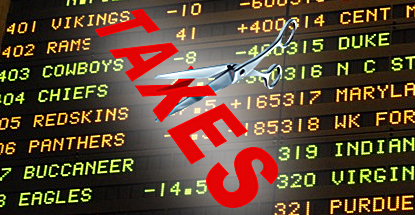 A Nevada politician has proposed federal legislation that would repeal a tax on sports betting handle. Rep. Dina Titus, a Democrat, has written a three-paragraph bill that seeks to eliminate the 0.25% tax the Internal Revenue Service imposes on sports betting wagers. Based on the $3.6b in wagers handled by Nevada sportsbooks in 2013, the state’s licensed bookmakers paid around $9m to cover this handle tax.
A Nevada politician has proposed federal legislation that would repeal a tax on sports betting handle. Rep. Dina Titus, a Democrat, has written a three-paragraph bill that seeks to eliminate the 0.25% tax the Internal Revenue Service imposes on sports betting wagers. Based on the $3.6b in wagers handled by Nevada sportsbooks in 2013, the state’s licensed bookmakers paid around $9m to cover this handle tax.
Titus’ bill was reportedly prompted by an inquiry from Lee Amaitis, CEO of CG Technology (formerly Cantor Gaming), which operates race- and sportsbooks for eight Nevada casinos. Since his company’s sportsbooks paid about a quarter of the total handle tax, Amaitis was curious as to what specific purpose the revenue was devoted, so he asked Titus to look into it. Titus told the Las Vegas Review-Journal that “the IRS didn’t even know it existed,” meaning the money was dumped into “some black hole in the general fund.”
The betting tax predates the 1992 PASPA sports betting prohibition and was likely conceived in order to give the feds another nail with which to hammer illegal bookmakers. Both Amaitis and William Hill US boss Joe Asher said their firms would support the notion of redirecting the tax revenue so that it stayed in the state where the wagers were placed. Amaitis said the $9m was a pittance to the bottomless pit that is the federal government “but it’s not a small amount of money” for Nevada.
If the IRS needed any further encouragement to forego the tax, they need look no further than how hard the Department of Justice fought to keep New Jersey from being allowed to offer legal Nevada-style wagering at Atlantic City casinos and state racetracks. Given the relative sizes of the states’ populations, revenue derived via the betting tax would have tripled had the state succeeded in its legal quest. But apparently the cash-strapped federal government wasn’t interested.
Speaking of which, if New Jersey admitted to spending $3m to fund its pursuit of legal sports betting, it’s likely that those fighting the state’s quest – the DOJ, four professional sports leagues and the NCAA – spent at least that much themselves. So Amaitis has an answer for how at least some of that $9m betting tax was spent.





